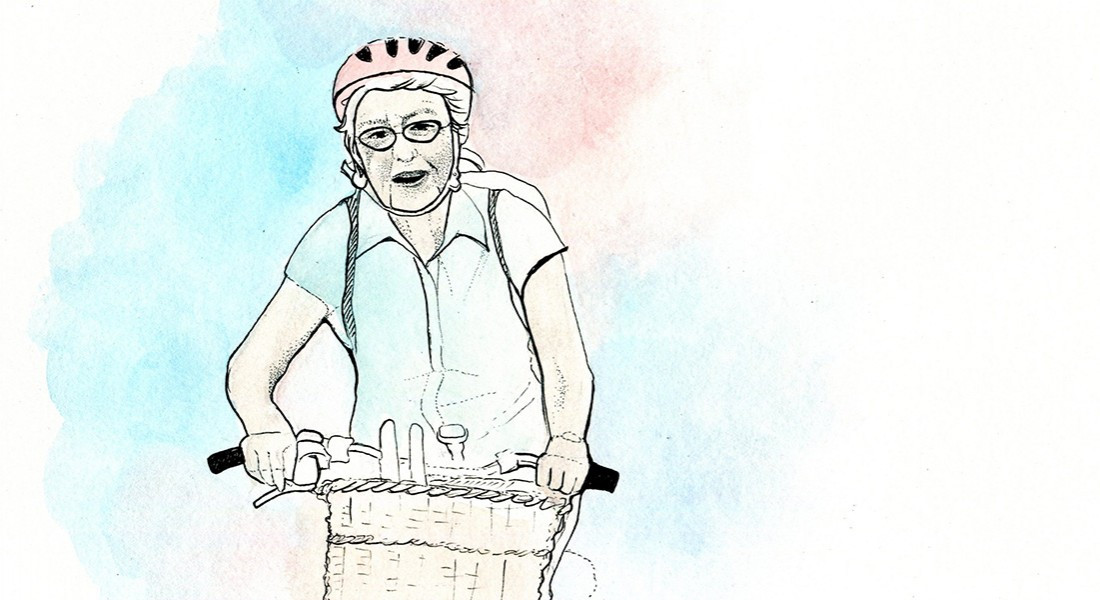Middle of Nowhere
Bike bros don’t have all the answers
Monday’s rain had hardened into rutted slabs and the wind was gusting to 70 km/h as I rode north between passing vehicles and the season’s crud against the curb.
I’d spent the morning staring at a screen to make my brain go, but that hadn’t done the trick. Outside, with the fresh air and the effort of staying upright, I finally felt the trickle of dopamine a few days overdue.
Cycling in traffic has always been cathartic for me. It’s a chance to turn off my brain and fall into a sort of subconscious, effortless focus. In the best of weather, I chase the flow of green lights through a shuffle of bored drivers. In the worst of storms, I assert my right to be on the road.
It might have something to do with temperament, but I suspect that feeling of ease is at least as much culturally conditioned.
I worked in a bike shop for a few years with an all-male and presumed-to-be-straight staff. Ads with women draped over bikes hung in the back, and non-male customers probably had reason to feel out of place.
“Casual sexism is a serious problem in the bike scene as a whole,” Andrea Bennett wrote of “cycling’s insular bro culture” in Maisonneuve.
Shops tend to hire from the ranks of those who already hang around, so it’s no surprise they continue to be masculine spaces where many women feel uncomfortable.
“Shrink it and pink it” has long been the industry’s unspoken mandate for designing women’s gear. The women’s version of the Tour de France was cancelled this year due to “scheduling conflicts.”
Even when the misogyny isn’t explicit, there’s an underlying vibe that the archetypical cyclist is able-bodied and masculine.
My car-free life has been affirmed to no end in lefty circles. I can show up to a meeting sweaty and disheveled, helmet in hand, and not have my aptitude or professionalism questioned. I might even gain some cultural cred.
Without a doubt, there are badass cyclists in Winnipeg who aren’t dudes, and there are bike scenes that create welcoming and safe spaces. Initiatives like the Bike Dump’s Women and Queer Night are important correctives to an otherwise often abrasive culture.
But maybe the hardcore, motivated, traffic-and-weather-defying bike bro shouldn’t be the benchmark against which potential cyclists are measured.
I’ve heard plenty of (white, male) cyclists argue that everyone should be on a bike. After all, cars are evil, right?
But shaming those without the inclination or ability to ride to work affirms a sort of individualism where the world becomes a better place when we all pull ourselves up by the bootstraps.
Mainstream commuter culture needs to see a shift away from “It’s not that hard, just get out there and do it,” to something more compassionate and understanding. Getting to work safely and sustainably shouldn’t require risk and adrenaline.
Instead of insisting or implying that potential cyclists become more hardcore, efforts should be directed toward advocating for improved public infrastructure, reducing barriers to access and resisting hyper-masculinism.
Many of us who identify as cyclists need an occasional reminder that a safer, more sustainable city doesn’t need to be contingent on everyone else becoming more like us.
Tim Runtz is the comments editor at The Uniter. His regular column, Middle of Nowhere, explores the culture and politics of places around Winnipeg.
Published in Volume 71, Number 24 of The Uniter (March 16, 2017)







